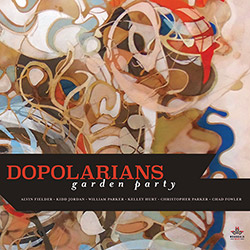
Legendary players, drummer Alvin Fielder, bassist William Parker, and saxophonist Kidd Jordan joined younger generation players pianist Christopher Parker, vocalist Kelley Hurt, and saxophonist Chad Fowler in New Orleans to record this exceptional album of modern jazz compositions primarily from Fowler, plus a collective improvisation and a narrative from Hurt.
In Stock
Quantity in Basket: None
Log In to use our Wish List
Shipping Weight: 3.00 units
EU & UK Customers:
Discogs.com can handle your VAT payments
So please order through Discogs
Sample The Album:
Alvin Fielder-percussion
Kidd Jordan-tenor saxophone
William Parker-bass
Christopher Parker-piano, voice
Chad Fowler-alto saxophone, saxello
Kelley Hurt-voice
Click an artist name above to see in-stock items for that artist.
UPC: 194171640032
Label: Mahakala Music
Catalog ID: MAHA-019-001
Squidco Product Code: 28677
Format: CD
Condition: New
Released: 2019
Country: USA
Packaging: Cardboard Gatefold
Recorded at Marigny Recording Studio in New Orleans, Louisiana, in June, 2018, by Rick Nelson .
"We recorded this at Marigny Studios in New Orleans, Louisiana in early June 2018. We all traveled in to do the session near Kidd Jordan so he wouldn't have to travel as he had recently gone through some challenges with his health. This was his first time playing tenor saxophone in months.
The group and the session itself is a collection of reunions. Chris & Kelley and Chad played together regularly but had lost touch for almost 20 years. Alvin and Kidd were old, dear friends and collaborators, going back to when they formed the Improvisational Arts Quintet decades previous to the session. William had, of course, played extensively with Kidd and Alvin over the years. Chris, Kidd, and Alvin had all collaborated many times previously, including Chris's performance on Alvin's last session as a leader, "A Measure of Vision". Despite the many connections, this was the first time this group of people had come together.
Apart from William, who hails from New York, Dopolarians is a decidedly southern affair. Alvin is from Meridian, Mississippi. Kidd is from New Orleans. Kelley is from Memphis, Tennessee (where Chris and Chad both met her), and Chris and Chad are from Arkansas.
Sadly, this session was the last date Alvin would make. He fell sick in late 2018 and passed away on January 5, 2019. Alvin was and is an inspiration to multiple generations of jazz musicians, a dear friend, and a mentor. We miss you, Mr. Fielder.
"C Melody" by Chris Parker, Alvin Fielder, Kidd Jordan & William Parker - When we were preparing for the session, Chris told stories about playing with Kidd in New Orleans and creating tunes on the spot. One person starts playing and the rest of the band plays the tune as if they already know it. We did a few pieces sort of like this on this session. C Melody started with no plan. Just Chris setting up a melodic motif. The melody becomes an ostinato, repeated in variation throughout while the rest of the group improvises around it. Chris and Kidd frequently play together as one, loosely connected instrument. Kidd's ear is remarkable as always. For a totally free piece, it's surprisingly hummable on subsequent listenings. We wanted to make accessible, beautiful free music in this session. C Melody embodies this. Enjoy the rock and roll ending. It's almost corny.
"Dopolaria" by Chad Fowler - Broken Italian words crammed together, 'Dopolaria' literally (but incorrectly) translates to "After the Aria". It's a love song. The theme is inspired by a fragment of a Puccini melody. The goal was impressionist beauty and catharsis.
"Garden Party", by Kelley Hurt - You know how married couples make up cutesy names for each other and their pets? Or how they might make up songs and do other rituals in private that they wouldn't dare share outside the home? "Garden Party" comes from that place. As Kelley describes in the introduction, it's a song she sings at home when she sees the bunnies come out in their garden behind the house. It's an improvised children's song for their home. Alvin says, "I've never played that straight before!"
"Father Dies; Son Dies", by Chad Fowler - There's a Zen koan about a rich family asking a zen master to write something for them which would symbolize prosperity to come. The zen master comes back with the shocking phrase: "father dies. son dies. grandson dies." Death is inevitable, but there is a natural order to things. Father Dies; Son Dies is a meditation on impermanence and the inevitability of death.
"Guilty Happy", by Chad Fowler - The title "Guilty Happy" refers to the feeling you have when you first notice a moment of happiness during the process of mourning a loved on. You know it's OK - even healthy, but it still feels wrong to feel alright. The melody is manic and repetitive (the score actually says "play until you can't stand it"). The solos weave between major and minor centers. As Kidd improvises, the piece dissolves into an unexpected, melancholic ballad. Alvin evokes Max Roach as William holds down a groove with some hint of unwritten changes for the tune. Kelley's vocal work during the ballad section is haunting. Alvin, as always, has the last word. As William put it directly after the tape stops, "you could cash a check with that snare roll, Al!"
"Impromptu", by Chris Parker - Composed in the moment at a rehearsal, Chris's tune is a joyous, deranged bebop piece. It's free but not really free-bop. We played the style un-ironically but without constraint. During a rehearsal, Alvin suggested bringing back the bridge and "playing it straight" on occasion, which gave it a cohesion of form but without any rigidity or need to stick to changes, number of measures, or even a specific tempo. The bass and piano solos on this tune are a highlight of the entire record."-Mahakala Music
Artist Biographies
• Show Bio for Alvin Fielder "Alvin Leroy Fielder, Jr. Born: November 23, 1935 in Meridian, Mississippi. Died January 5, 2019. Drums, Percussion, Composer. Father, Alvin Fielder Sr., studied coronet. Mother played piano and violin; grandmother played piano; mother's brother played clarinet. Brother, William, is Director of Jazz Studies, trumpeter, and trumpet instructor at Rutgers University. At 13, Alvin Fielder began musical studies by joining Harris Senior High Band in Meridian, Mississippi, under leadership of Carlia "Duke" Otis. Alvin continued studies with Ed Blackwell while in New Orleans studying pharmacy at Xavier U. in 1952-53. After transferring to Texas Southern U. in Houston, TX, he continued course of study with Herb Brockstein as well as private lessons with George "Dude" Brown, Gene Ammons, drummer from Washington, DC, and Clarence Johnston, James Moody's drummer, from Boston, MA, whenever they came through Houston working. Alvin also had informal lessons with Jual Curtis and G.T. Hogan. From 1954-56, Alvin worked with the "Pluma" Davis sextet, which included Don Wilkerson, Richard "Dicky Boy" Lillie, John Browning, Carl Lott, Cr., and many other Houston jazz luminaries. He backed such artists as Lowell Fulsom, Amos Milburn and other R&B artists with extended engagements in Houston. Alvin also made several studio dates for Duke records. He was also active on Houston jazz scene with Jimmy Harrison Quintet, John Browning quintet, and Eddie "Cleanhead" Vinson sextet. From 1959 to 1968, Alvin was active in Chicago with: Sun Ra Arkestra 1960-61, Muhal Richard Abrams 1962-63, Roscoe Mitchell 1963-66, Eddie Harris and Kalaparusha 1965, co-op trio with Fred Anderson and Lester Lashley 1967-69. In between, he worked with John Stubblefield, Jack DeJohnette, "Scotty" Holt, Joseph Jarman, and other Chicago jazz musicians. Alvin is a charter member of AACM with Muhal Abrams, Roscoe Mitchell, Fred Anderson, Malachi Favors, Jodie Christian, Steve McCall, Phil Cohran, Thurman Barker, Ajaramu, Charles Clark, Christopher Gaddy, Freddy Berry, etc. While in NY in 1962, Alvin played and rehearsed with Ernie Farrow, Bernard McKinney, Ray McKinney, Wilbur Ware, Vincent Pitts, Pat Patrick, George Scott and musicians associated with this era. Alvin moved back to Mississippi in late 1968 to take over family pharmacy due to father's illness. With John Reese and Black Arts Music Society, Alvin was active in obtaining grants from NEA and Mississippi Arts Commission to bring musicians such as Roscoe Mitchell, John Stubblefield, Malachi Favors, Muhal Richard Abrams, Clifford Jordan and others to Mississippi. Alvin worked extensively in early 1970s with Joe Jennings, alto saxophonist now in Atlanta, and Edward "Kidd" Jordan, multi-saxophonist from New Orleans, with whom he co-leads the Improvisational Arts quintet. One of the most important new music groups in the South, IAQ has included at various times Clyde Kerr, trumpet; Alvin Thomas, tenor saxophone; London Branch, Elton Herron, basses; Darryl Levine, piano; Kent Jordan, flute. Also worked with Dennis Gonzalez, trumpeter and multi-instrumentalist from Dallas, another leader on the new music scene in Dallas and TX. Alvin also had a founding role in the nationally-acclaimed Louis "Satchmo" Armstrong Jazz Camp in New Orleans, LA. Alvin has been involved with this growing program since it began in 1995. Recordings include Sound (1967) with Roscoe Mitchell Sextet, No Compromise (1983) with IAQ, The New New Orleans Music (1985) with New Music Jazz for Rounder, and Liquid Magic, Bannar, Namesake (all 1987) and Debenge-Debenge (1988) for Silkheart, (2006) Live at The Blue Monk, and (2004) Resolving Doors, The Joel Futterman, Alvin Fielder, Ike Levin Trio. Appearances include Lincoln Center, Chicago; NO Jazz & Heritage Festival; Jazz Marathon '82 Festival, Holland; Moers Intl. New Jazz Festival, Germany 1982; Jazz Danes LA Drones Festival, France 1984; Northsea Jazz Festival, Netherlands 1984; Heinekin Jazz Festival, Netherlands 1988; Atlanta and Texas jazz festivals 1989; Festival Intl. de Louisiane 1991." ^ Hide Bio for Alvin Fielder • Show Bio for Kidd Jordan "Edward "Kidd" Jordan (born May 5, 1935) is an American jazz saxophonist and music educator from New Orleans, Louisiana. After completing a music degree at Southern University in Baton Rouge, he relocated to New Orleans. He taught at Southern University at New Orleans from 1974 to 2006. Jordan was born in Crowley, Louisiana, and was raised during the time when rice farming was the predominant economic activity in the area. Jordan has noted that the music in southwestern Louisiana was "strictly Zydeco and Blues from way around, and that's what I came up listening to." Zydeco musician Clifton Chenier hailed from the same area, as did tenor saxophonist Illinois Jacquet (whose music teacher also instructed Jordan). Jordan's first instruments were C-melody and alto saxophones. While in high school, Jordan began performing "stock arrangements for three or four saxophones" with some older musicians, and immersed himself in the music of Charlie Parker. Jordan read transcribed solos in Down Beat magazine but also learned Parker's music by ear. He credits Illinois Jacquet with first giving him the idea of playing free improvisation, but was more profoundly affected by the free jazz of Ornette Coleman (who had previously performed in the area with blues bands). Jordan majored in music education at Southern University, attending the school at the same time as Alvin Batiste (his brother-in-law). He originally planned to become a classical alto saxophonist. He moved to New Orleans in 1955, and began playing frequent R&B gigs with musicians such as Guitar Slim, Ray Charles, Big Maybelle, Big Joe Turner, Chuck Willis (with George Adams on baritone) and Choker Campbell. Jordan has described these gigs as being "satisfying for me, because there was a feeling that you'd get from dealing with that. I've played with some of the great female vocalists, from Gladys Knight to Aretha Franklin, or Big Maybelle, Little Esther, Lena Horne, and there's an aesthetic in dealing with those people that a whole lot of people don't get to. And the aesthetic from the Blues is a part of the thing that I want to have in my playing. I don't care how out it gets." Jordan performs on tenor, baritone, soprano, alto, C-melody and sopranino saxophones, as well as contrabass and bass clarinets. He has indicated a preference for playing "outside" music (for example, free improvisation) on tenor, because he closely associates the alto with his earlier study of classical repertoire, tone, and technique. Jordan has performed and recorded with a wide selection of musicians in styles ranging from R&B to avant-garde jazz, including Ray Charles, Stevie Wonder, R.E.M., William Parker, Alvin Fielder, Archie Shepp, Fred Anderson, Ornette Coleman, Ellis Marsalis, Cannonball Adderley, Ed Blackwell, and Cecil Taylor. In 2008 he was awarded a lifetime recognition honor by the Vision Festival. In his performances and recordings his music is entirely improvised: "Everything you hear on my albums is improvised." he explains. "It's collective improvisation, but there are no tunes. I tried writing down ideas a long time ago but I don't do that anymore.". The French Ministry of Culture recognized Jordan as a Knight (Chevalier) of the Ordre des Arts et des Lettres in 1985. The French government bestowed him with their highest artistic award for his impetus as a visionary educator and performer. Jordan taught Donald Harrison and Branford Marsalis while the two were teenagers, and was an instructor at New Orleans Center for Creative Arts (NOCCA). As an instructor of jazz studies at Southern University at New Orleans, Jordan encouraged his students to pursue new approaches to traditional musical forms. One of Jordan's students was trombonist Charles Joseph, who would go on to co-found the Dirty Dozen Brass Band. Jordan composed "Kidd Jordan's Second Line" for the Dirty Dozen Brass Band prior to their first European appearance in 1982, and has also performed with the band. In 2006, Jordan lost his home and most of his possessions during the aftermath of Hurricane Katrina. A few weeks after the hurricane, he recorded the album Palm of Soul in Brooklyn with William Parker and Hamid Drake. Jordan has since returned to New Orleans. In 2011, the television series Treme featured a track from Palm of Soul, "Last of the Chicken Wings." Jordan later made a brief appearance in Treme." ^ Hide Bio for Kidd Jordan • Show Bio for William Parker "William Parker is a bassist, improviser, composer, writer, and educator from New York City, heralded by The Village Voice as, "the most consistently brilliant free jazz bassist of all time." In addition to recording over 150 albums, he has published six books and taught and mentored hundreds of young musicians and artists. Parker's current bands include the Little Huey Creative Music Orchestra, In Order to Survive, Raining on the Moon, Stan's Hat Flapping in the Wind, and the Cosmic Mountain Quartet with Hamid Drake, Kidd Jordan, and Cooper-Moore. Throughout his career he has performed with Cecil Taylor, Don Cherry, Milford Graves, and David S. Ware, among others." ^ Hide Bio for William Parker • Show Bio for Christopher Parker "New York based pianist Chris Parker is a multifaceted performer and composer who has written for everything from small jazz groups and chamber ensembles to full symphony orchestra. With a long list of original works, he heads his own group that offers a diverse, lineup of Latin, funk and straight-ahead jazz. Contemporary jazz icons Randy Brecker, Bob Mintzer, Chris Vadala and Lyn Seaton have all performed with Parker's band. Originally from Portland, Oregon, Parker started classical piano lessons at age nine. Eventually earning Bachelors and Masters degrees in music composition, Parker moved to New York where he has been Professor of Music and head of jazz studies at SUNY Orange. A New York Chancellor's Award winner, Parker engages and inspires students as he teaches them the skills they will need as future musicians. His two CDs on the OA2 label, "Late in Lisbon" and the newly released "Full Circle" feature the unusual frontline of saxophone and violin. The albums are an exciting mix of Parker's original jazz compositions ranging in style from burning latin and straight ahead, to funky tunes and laid back ballads." ^ Hide Bio for Christopher Parker • Show Bio for Chad Fowler "I'm Chad Fowler. I write books, write and play music, write software, lead organizations (currently for Microsoft, in Berlin), invest in startups, speak at conferences, teach, learn, organize conferences, etc. I started and co-organized a couple of Ruby-related conferences including The International Ruby Conference and RailsConf." ^ Hide Bio for Chad Fowler • Show Bio for Kelley Hurt Kelley Hurt is an American jazz singer, known for the groups Dopolarians, George Cartwright/Chad Fowler/Steve Hirsh/Chris Parker, and The Music of Frank Lowe. ^ Hide Bio for Kelley Hurt
3/31/2025
Have a better biography or biography source? Please Contact Us so that we can update this biography.
3/31/2025
Have a better biography or biography source? Please Contact Us so that we can update this biography.
3/31/2025
Have a better biography or biography source? Please Contact Us so that we can update this biography.
3/31/2025
Have a better biography or biography source? Please Contact Us so that we can update this biography.
3/31/2025
Have a better biography or biography source? Please Contact Us so that we can update this biography.
Have a better biography or biography source? Please Contact Us so that we can update this biography.
Track Listing:
1. C Melody 9:33
2. Dopolaria 7:55
3. Father Dies; Son Dies 11:58
4. Garden Party 12:20
5. Guilty Happy 12:01
6. Impromptu 8:41
Improvised Music
Jazz
Free Improvisation
NY Downtown & Metropolitan Jazz/Improv
Quintet Recordings
Parker, William
Collective & Free Improvsation
Melodic and Lyrical Jazz
Spoken Word
Staff Picks & Recommended Items
Jazz & Improvisation Based on Compositions
Search for other titles on the label:
Mahakala Music.


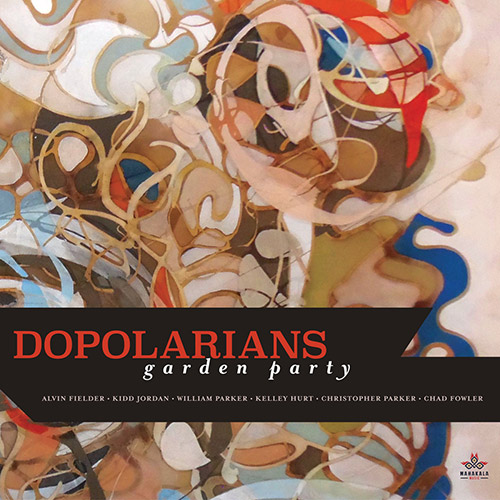
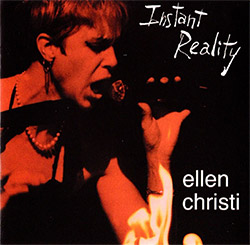
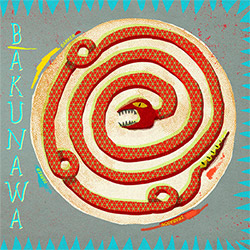

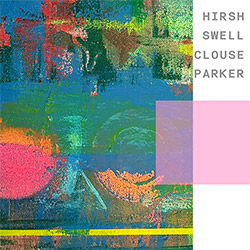

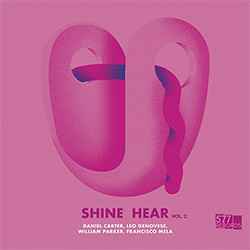
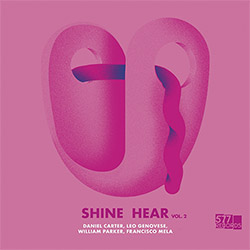
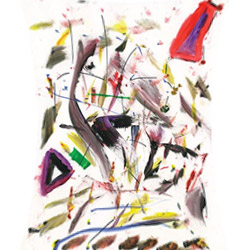
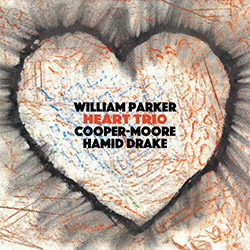
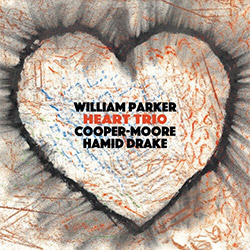

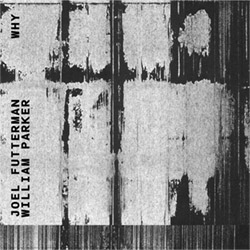
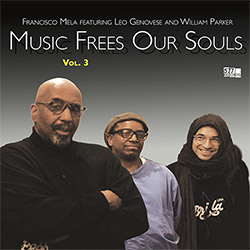




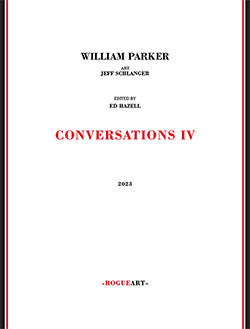
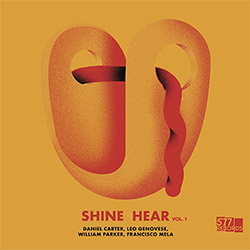
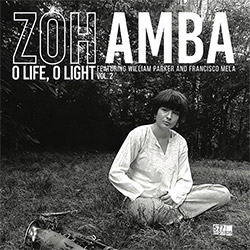
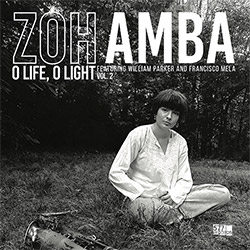
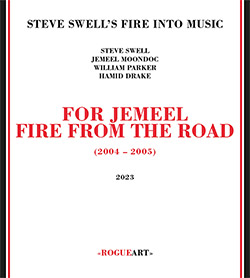
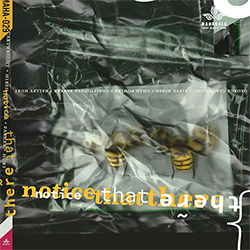
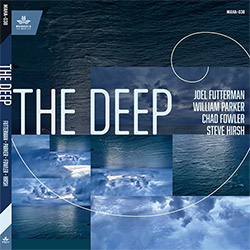

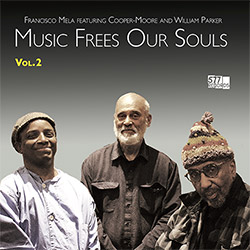

![Rodrigues, Ernesto / Nuno Torres / Guilherme Rodrigues: Whispers In The Moonlight - In Seven Movements [2CDs]](https://www.teuthida.com/productImages/misc4/35765.jpg)



![Cocks, Laura: FATHM [VINYL]](https://www.teuthida.com/productImages/misc4/36055.jpg)










![Ackerley / Prymek / Turner: All Hope With Sleeping Minds [CASSETTE]](https://www.teuthida.com/productImages/misc4/35950.jpg)
![Myers, David Lee : Tin Drop Tear [BOOK w/ DOWNLOAD]](https://www.teuthida.com/productImages/misc4/36030.jpg)



![Schindler, Udo / Sandy Ewen / Damon Smith: Munich Sound Studies Vols. 4, 5 & 6 [3 CDs]](https://www.teuthida.com/productImages/misc4/35966.jpg)






![Turbulence Orchestra & Sub-Units: Smear Out the Difficulties (Double Live) [2 CDs]](https://www.teuthida.com/productImages/misc4/36048.jpg)
![Perelman, Ivo / Tyshawn Sorey: Paralell Aesthetics [2 CDs]](https://www.teuthida.com/productImages/misc4/35871.jpg)


![Sjostrom, Harri: SoundScapes #4 Festival Berlin 2023 [3 CDs]](https://www.teuthida.com/productImages/misc4/35874.jpg)



![Glenn, Jordan: Flustered [CASSETTE]](https://www.teuthida.com/productImages/misc4/35948.jpg)


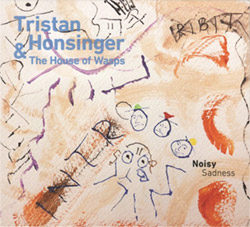
![Lindorff-Ellery, Evan: Church Recordings from Monhegan [CASSETTE]](https://www.teuthida.com/productImages/misc4/35949.jpg)
![Schindler, Udo / Werner Dafeldecker / Gunnar Geisse: Travelling Sound Images - Cognitive Transfers [Trio]](https://www.teuthida.com/productImages/misc4/35767.jpg)

![Egberth, Dennis: The Dennis Egberth Dynasty [VINYL]](https://www.teuthida.com/productImages/misc4/35549.jpg)


![Schindler, Udo / Rieko Okuda / Eric Zwang Eriksson: Disturbed Terrains [2 CDs]](https://www.teuthida.com/productImages/misc4/35330.jpg)






![Olencki, Weston : Pearls Ground Down To Powder [VINYL]](https://www.teuthida.com/productImages/misc4/35956.jpg)
![Myers, David Lee: Oculus [2CDs]](https://www.teuthida.com/productImages/misc4/35857.jpg)


![dustsceawung: dustsceawung [CASSETTE w/ Download]](https://www.teuthida.com/productImages/misc4/35753.jpg)




![Halls of the Machine: Atmospheres For Lovers And Sleepers [CASSETTE w/ DOWNLOAD]](https://www.teuthida.com/productImages/misc4/35806.jpg)



![AHC (Alexander Cooper): Lase [2 CDs]](https://www.teuthida.com/productImages/misc4/35754.jpg)



![Fagaschinski, Kai / Yan Jun : Graveyard Processions [VINYL w/ DOWNLOAD]](https://www.teuthida.com/productImages/misc4/35474.jpg)
![Brant, Cody / Carl Kruger: Smoke Detail [CASSETTE w/ DOWNLOAD]](https://www.teuthida.com/productImages/misc4/35551.jpg)








![Zorn, John / JACK Quartet: The Complete String Quartets [2 CDs]](https://www.teuthida.com/productImages/misc4/35609.jpg)

![Lonsdale, Eden: Dawnings [2 CDs]](https://www.teuthida.com/productImages/misc4/35480.jpg)







![Sanna, Claudio: Compositori Sardi Contemporanei II [2 CDs]](https://www.teuthida.com/productImages/misc4/35317.jpg)







![Zurria, Manuel: Fame di Vento [3 CDs]](https://www.teuthida.com/productImages/misc4/35167.jpg)

![Granberg, Magnus / Nattens Inbrott / Skogen: Holde Traume, Kehret Wieder! [2 CDs]](https://www.teuthida.com/productImages/misc4/35038.jpg)

![Electric Bird Noise / Derek Roddy: 8-10-22 [CD EP]](https://www.teuthida.com/productImages/misc4/35970.jpg)








![Elephant9 : Mythical River [VINYL]](https://www.teuthida.com/productImages/misc4/34624.jpg)



![Elephant9 with Terje Rypdal: Catching Fire [VINYL 2 LPs]](https://www.teuthida.com/productImages/misc4/35355.jpg)
![Deerlady (Obomsawin, Mali / Magdalena Abrego): Greatest Hits [VINYL]](https://www.teuthida.com/productImages/misc4/34876.jpg)







![Surplus 1980: Illusion of Consistency [CD]](https://www.teuthida.com/productImages/misc4/35069.jpg)
![Staiano, Moe: Away Towards the Light [VINYL + DOWNLOAD]](https://www.teuthida.com/productImages/misc4/35037.jpg)



![Caveira (Gomes / Sousa / Abras / Ferrandini): Ficar Vivo [VINYL]](https://www.teuthida.com/productImages/misc4/34643.jpg)
![Coley, Byron: Dating Tips for Touring Bands [VINYL]](https://www.teuthida.com/productImages/misc4/17906.jpg)

![Lost Kisses: My Life is Sad & Funny [DVD]](https://www.teuthida.com/productImages/misc4/lostKissesDVD.jpg)